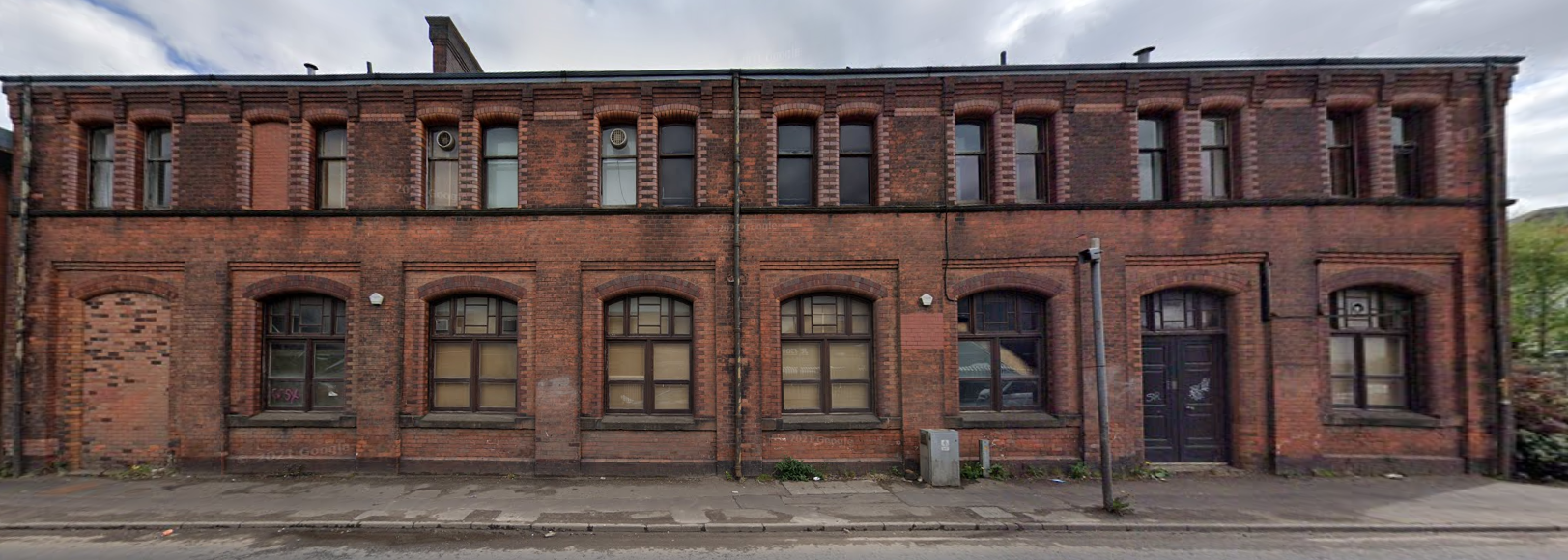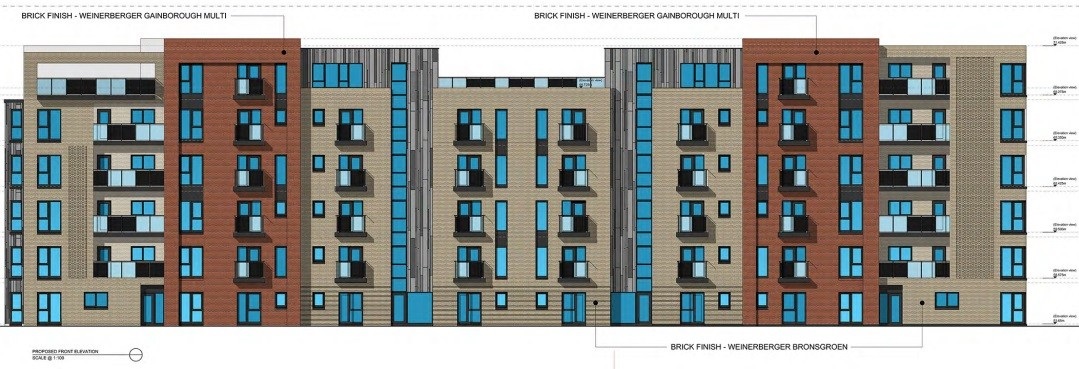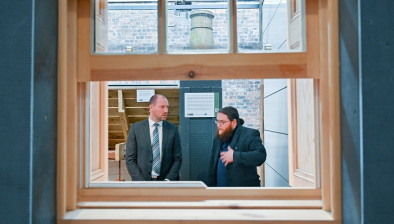Port Dundas sawmill granted C-listed status by Historic Environment Scotland

124 Craighall Road (Google Street View)
Historic Environment Scotland (HES) has awarded Category C listing status to a Victorian industrial building in Port Dundas that is subject to a live application for replacement by 60 apartments.
A10 Architects has submitted an application on behalf of Weiss Development Co. Ltd to knock down the former City Sawmills office building at 124 Craighall Road to make way for a five/six-storey block.
A design document included with the proposal stated that “the original brick building is showing evidence of settlement where cracking and sagging is evident”, adding that it was not “feasible or practical” to keep the building because of the level of remedial works required.
A decision from city officials on the proposed mix of one, two and three-bedroom flats is still awaited.
However Glasgow MSP Paul Sweeney MSP applied to Historic Environment Scotland to have the building listed, and also got it covered by a preservation notice, whilst it was assessed.
Mr Sweeney’s letter objecting to the demolition stated: “This building is an outstanding example of its type in the Port Dundas area, and relates to a former industrial use along the scheduled monument of the Forth and Clyde Canal that has otherwise been almost entirely obliterated over the last 40 years, most recently with Listed Building Consent granted by Glasgow City Council to demolish the Temple Sawmill at Anniesland.”
He added: “The applicant should be urged to fundamentally reorientate the proposed development of new buildings on the site so that the historic building is retained and integrated into their proposal. This is perfectly feasible to do.”
The Architectural Heritage Society for Scotland (AHSS) also objected to the demolition, arguing that while the building is architecturally modest, it is representative of the untold histories of the working class.
This building was previously proposed for listing in May 2022. Historic Environment Scotland assessed the site and found the building to meet the criteria of special architectural or historic interest but decided not to list the building because the site was subject to development proposals which were at an advanced stage.
On reviewing this decision, HES said it has since been able to identify the designer as George Bell II of Clarke and Bell and provide some further clarification about the style of the building’s design.
It described the former office block as “a good surviving example of a late 19th century industrial office building that retains good quality detailing to the exterior and interior and a high level of authenticity”.

Plans for the proposed new flats
HES added: “The elevations of the former office block at 124 Craighall Road incorporate various brick detailing including the use of polychromatic bricks, glazed bricks and recessed details. Classical style architectural features are created through the careful use of recessed brick details including the pilasters around the ground floor windows and corbelled brick dentils at the first floor. The quality of the detailing on these elevations reflects the function of the building as the principal office and entrance of a large a firm at the height of their business.
“The interior floorplan remains legible as a late 19th century office and has a detailed entrance stairway, public meeting rooms and a corridor of office rooms reflecting its business function. The interior decorative scheme retains variety of high-quality timber decorative details which advertised the building’s status as the office block of a nationally recognised timber merchants. The features in the former public meeting rooms include multi-panel doors with ornate architraves, carved fireplaces and unusually decorative wood veneer parquetry on both dado panelling and office floors.
“Apart from the removal of the single storey entrance section at the south, the building is substantially unaltered since the late 19th century. It retains its form (both in plan and elevations), openings and significant amount of late 19th century fabric including what appears to be its original windows and glazing pattern.”
In its summary, Historic Environment Scotland said 124 Craighall Road meets the criteria of special architectural or historic interest for the following reasons:
- It is a good surviving example of a late 19th century industrial office building.
- There is special design interest in the use of industrial brick with a high degree of detailing. The interior retains quality decorative timber finishes to walls, floors and fireplaces.
- The exceptional quality of the timber finishes reflects the building’s association with the historic timber trade, one of the largest of its kind in the United Kingdom in the late 19th century.
- It is the only surviving building of a once vast timber yard in North Glasgow, and its location near the canal is of historic interest.
- It is an important reminder of the city’s industrial past and in particular its historic association with the timber trade in Glasgow.
C-listed status gives the building extra protection but does not rule out a decision in favour of demolition.
Welcoming the decision, Paul Sweeney MSP said: “The City Sawmills at Port Dundas are an outstanding example Glasgow’s industrial past, of which we should be incredibly proud. As a city and as a population, we should celebrate our history and our heritage, including our industrial past.
“There was absolutely no justification whatsoever for demolishing it and I am delighted Historic Environment Scotland have agreed with my application and awarded the site C listed status meaning it can be preserved for years to come.”









